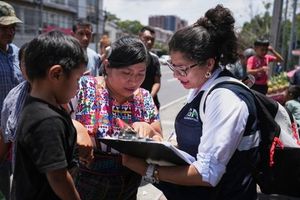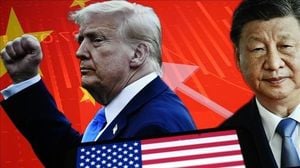The upcoming German Federal Election, set for February 23, 2025, poses significant questions about the future political alignment of the country. Amidst shifting political dynamics, the election is notable as it will involve multiple parties competing for power, particularly after the recent challenges faced by Chancellor Olaf Scholz’s government.
The country is currently witnessing the dissolution of the amp coalition government, often termed the Ampel-Koalition, which consists of the SPD, the Greens, and the FDP. This merge has come under strain, especially following the Chancellor's failure to secure confidence from the Bundestag—a move many have interpreted as orchestrated to clear the path for early elections. Scholz stated, "There must be no cooperation with extreme right parties in Germany," highlighting the political tensions as the SPD, along with other parties, strategize for the upcoming election.
Polling data reveals fluctuated support for various parties. Once buoyed by significant voter support, the SPD is now contending with shifts in public sentiment. The CDU/CSU alliance has climbed to the forefront, seeking to capitalize on the struggles of their rivals. Concurrently, the AfD has seen increased traction among voters—climbing to become the second strongest party by mid-2023, though they faced slight retreats by early 2024.
Political parties are mobilizing efforts to secure their supporters’ votes. According to political scientist Frank Brettschneider from the University of Hohenheim, some voters are adopting tactical voting to influence the election outcome strategically. "They vote not the preferred party, but another one to pursue specific goals," asserts Brettschneider. This approach is particularly prevalent among those who fear their favored party may not clear the five-percent hurdle for parliamentary representation.
For the February election, the political scene is increasingly crowded, with parties such as the newly formed BSW (Bündnis Sahra Wagenknecht) also gaining traction, achieving over 5% of votes early on, according to polling data. Up until now, the BSW emerges amid vulnerabilities displayed by the previously dominant parties, demonstrating voters' shift toward new alternatives.
One major consequence of these dynamics is the reform of election laws—it now transfers the emphasis on Zweitstimmen, or second votes, as the key determinant for how many parliamentary seats any party can secure. The electoral changes indicate direct mandates won’t guarantee entry to the Bundestag for the winning candidates if their party fails to achieve enough Zweitstimmen. Voter behavior may shift radically, as many begin to forgo split voting—where they allocate their Erststimme (first vote) and Zweitstimme (second vote) to different parties—toward more block voting to secure representation for their chosen party. This could have drastic consequences for larger parties attempting to maintain representation.
Marking the tension surrounding coalition formations, CDU leader Friedrich Merz has voiced ambitions to form new alliances, excluding immediate partnerships with the AfD, which he deems unacceptable. At the same time, SPD chair Saskia Esken has denounced Merz’s approach, labeling it as "an attempt of blackmail." This tug-of-war illuminates the complex negotiations likely to shape post-election government discussions.
The political race leading up to the 2025 elections is marked by uncertainty, tactical voting, and newly aligned party strategies. It may be challenging for voters to navigate the shifting alliances and potential coalitions, particularly as the new election laws complicate the basics of electoral strategy. According to electoral forecasts, the future composition of the Bundestag could witness unprecedented fragmentation, with parties such as the AfD likely to challenge historically dominant coalitions.
The ideological divisions sowed within the political discourse will likely come under scrutiny as voters prepare for the polls. The growing divergence between established parties and new contenders signals possible political upheaval, raising pressing questions about governance, policy direction, and the prevalent political sentiment among German citizens. All eyes will be on the upcoming election as the public seeks to assert their values through their ballot on February 23, 2025.



